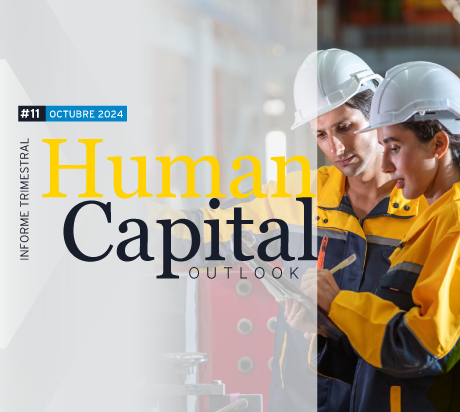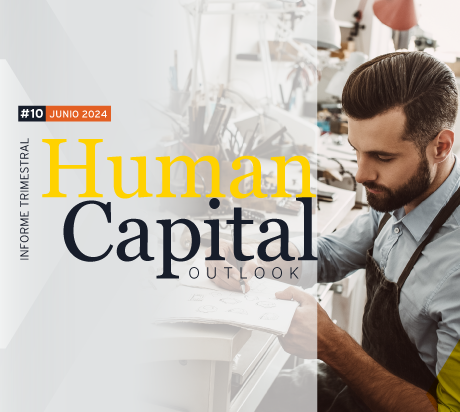The Human Capital Outlook, the quarterly publication of the EY Sagardoy Talent and Innovation Institute focused on the labor market and its trends, reaches its eighth edition. Its purpose is to provide a valuable tool for professionals and specialists in employment, labor relations, and human resources, supporting their understanding of an increasingly dynamic and complex labor environment.
Quarterly Labor Market Observatory
This edition of the Human Capital Outlook presents the main findings of the Quarterly Labor Market Observatory (QLMO), based on data updated through November 2023. The report is structured into four sections: The first section analyzes aggregate indicators (employment, unemployment, and economic activity), noting a slowdown in job creation during the third quarter and the early part of the fourth quarter. The second section continues the monitoring of the 2022 Labor Reform, highlighting the stability of both the temporary employment rate and unemployment flows, suggesting that the immediate effects of the reform may have reached their limit.
The third section addresses one of the most pressing challenges in the Spanish labor market: the rising unemployment among older workers, which poses a key priority for medium- and long-term active labor market policies. Finally, a new section of indicators is introduced, focused on the relationship between employment and environmental sustainability, with particular attention to the development of “green jobs” and their link to greenhouse gas emissions.
Legal and Labor Developments
This section on legal and labor developments, prepared by Sagardoy Abogados, analyzes the most relevant legislative developments in the labor field. It highlights the measures adopted during the third quarter of 2023, such as Royal Decree-Law 6/2023, which amends Law 36/2011 so that the Social Jurisdiction is responsible for disputes related to dependency. Royal Decree-Law 7/2023 is also mentioned, which implements measures to complete the transposition of the Directive on the work-life balance of parents and carers, and to improve unemployment protection.
In addition, possible legislative amendments are mentioned, such as the reduction of working hours and changes to the regulation of dismissal. Regarding case law, the inclusion of the seniority-based supplement for the purpose of applying the statutory minimum wage is highlighted, unless otherwise provided in the applicable collective agreement. The compensation of 1,800 euros for the denial of the paternity supplement in retirement is also addressed. Finally, a case of dismissal for breach of contractual good faith related to the misappropriation of products is analyzed.
Human Capital Trends
This edition emphasizes the growing importance of Vocational Education and Training (VET) and its Dual VET modality in shaping the future labor market and fostering a more diverse and skilled workforce. Key findings from a study conducted by the CEOE Foundation and CaixaBank are presented, highlighting that VET will be essential in generating over 14 million jobs by 2035, with 27.1% of them directly linked to VET qualifications. VET currently represents 34.8% of job offers and plays a crucial role in the integration of foreign nationals and individuals with special needs. Furthermore, Dual VET not only equips individuals with technical skills but also offers personal, professional, and social benefits, serving as a key driver for a more inclusive and sustainable future of work.
Quarterly publication prepared by the EY – Sagardoy Talent and Innovation Institute


